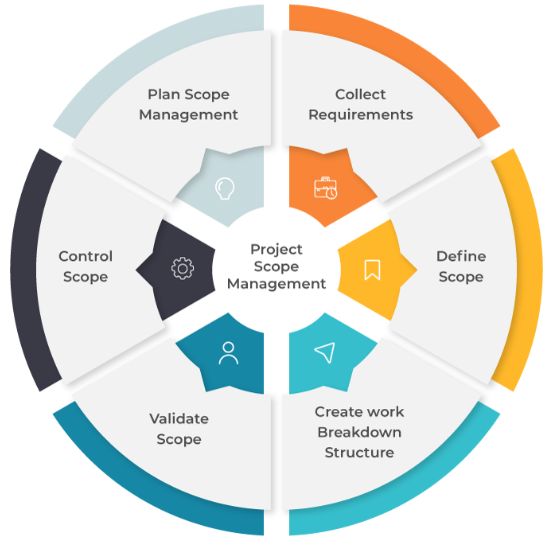| Ali SHAH

Importance of Project Scope Management
Why Project Scope Management is Important?
Project Scope is the work that is required to be done to deliver the product, service or result. This process helps in determining the budget, resources and timeline for the Project.
Every Project Manager wants the project to be completed on time and without exceeding budgets.
Project Scope is discussed with all the stakeholders involved so the requirements remains clear and all the stakeholders are align with the scope. Primary aim of the Project scope management is to control what is and is not involved in the project. By performing best practices and processes for effective project scope management, a project manager can ensure that the deliverables product features and functions, together with the scope of the project, meet the needs of the stakeholders.
Project Scope Management Steps:

- Plan Your Scope
- Collect Requirements
- Define Your Scope
- Create a Work Breakdown Structure (WBS)
- Validate Your Scope
- Control Your Scope
How to Avoid Scope Creep:
A well-defined Project Scope Management can avoid Scope Creep
- Defining Requirement clearly
- Document the Requirements
- Through Change Control Process
- Engage the Project Team
Change Control Procedure:
During the project course we have modifications which needs to be done and can benefit the project. These changes will be done to the already approved project scope. Any change should be done through the formal change procedures. Overall, the project change control process makes sure that no matter what happens, the project will continue to move forward without leaving anyone out of the loop.
Conclusion:
The implementation of scope management in a project is considered essential and is never a difficult task; however, it requires effort, time, and patience. Only with the help of scope management, a project manager can define, control and ensure that the project deliverables are accomplished.

